Fraternity
- 1714 Hinman Ave. Evanston, IL 60201
- headquarters@sigmachi.org
- Directory
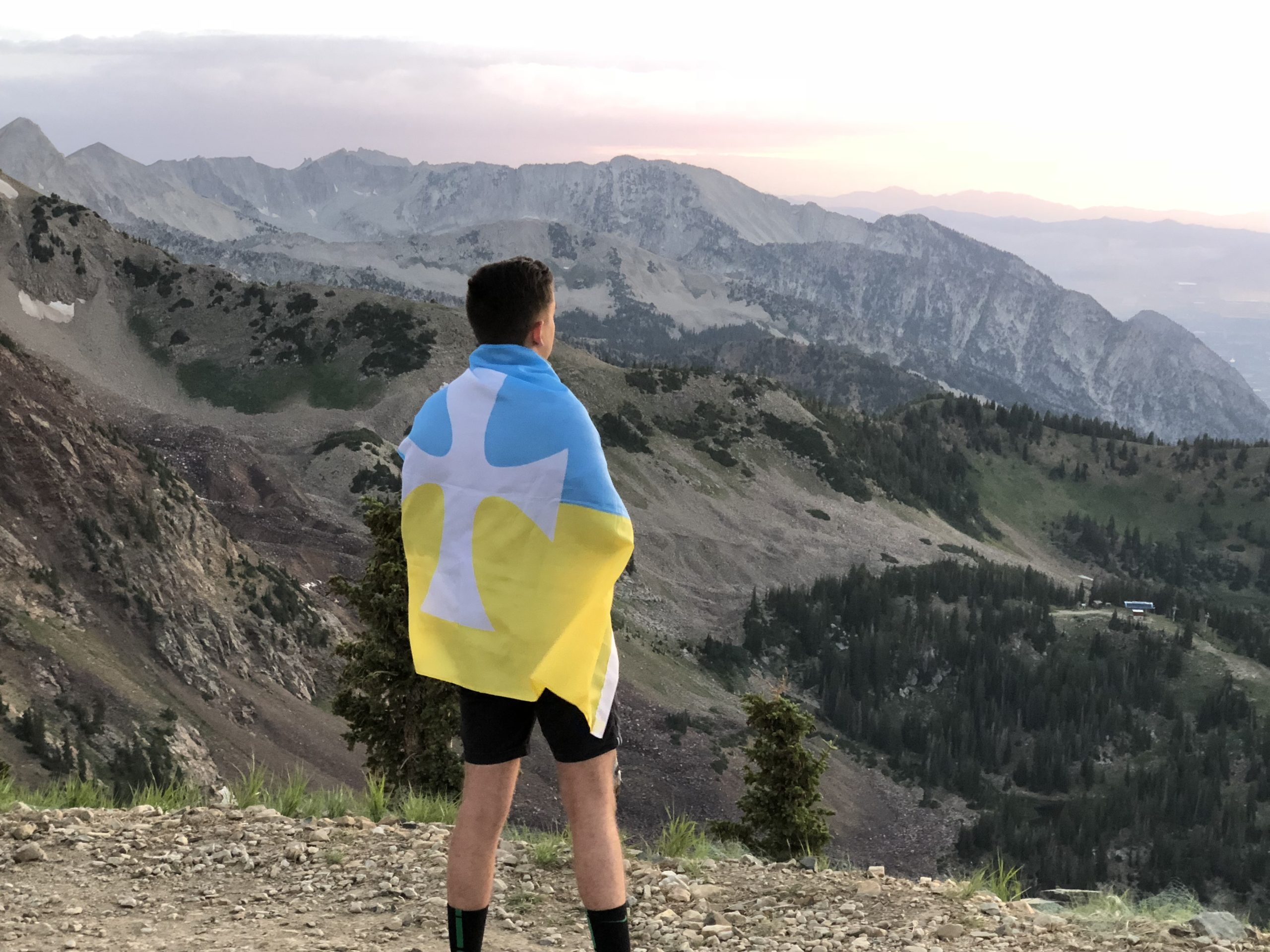
BY ASHLEY SZATALA
Trout, AUSTIN PEAY 2006, details below his passion for helping others discover their authentic selves
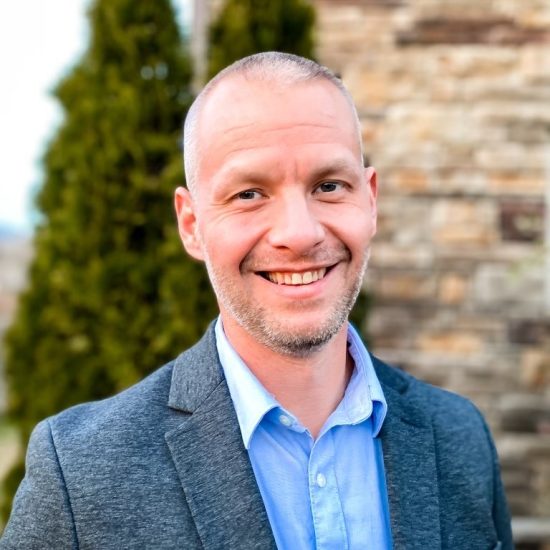
Transformational leadership is the practice by which leaders inspire and empower others to innovate and create change that will positively impact the Fraternity and ultimately the world. The transformational leader first must learn to manage self before being able to lead others and cultivate action within their community and campus.
Jesse Trout, AUSTIN PEAY 2006, had to get real with himself before he could live authentically, find greater success in his endeavors and build more meaningful relationships with others. It’s an experience that has shaped the man he is today — and the mentor he’s become to others. Through his interactions with others; his personal and professional coaching business, Mindful Life; and his role as regional trainer for the Sigma Chi Leadership Institute, he seeks to mentor others in uncovering their life’s purpose. Trout discusses below his passion for mentorship, the impact Sigma Chi has made on his life and what transformational leadership and putting it into practice means to him.
You’re a certified personal and professional coach in addition to your role as a regional trainer with the Sigma Chi Leadership Institute [SCLI]. What inspired you to get into coaching?
Early out of college I was in higher ed[ucation] for a couple years doing financial aid and was adjunct faculty and then had stepped away from it for a bit and wanted to get back into it. I’m looking at the job posting [for being a student success specialist and coach with InsideTrack] and I’m thinking, “I don’t know exactly what this is, but I know I could learn how to do it.” So, I rolled the dice and got the job [in December 2012]. The biggest thing was I started working with master’s degree students, and I felt totally out of my depth.
So, I started looking at external resources and asking for coaching books for Christmas. I got a couple as presents and started doing some research about training because I had already experienced, just to use our parlance, how transformational coaching can be. That sort of support empowers people. It’s not an imposition of values. It’s not very directive. It’s just asking really good questions and getting out of the way. Once I dove in, I fell in love and started working with clients as part of the homework assignments for the training I was going through. Then it just kind of took off like a rocket ship from there [beginning in 2015]. I started working with more and more folks, finished that certification, turned around and got a couple others as well.
What’s really neat about my role now with SCLI is that it dovetails [with my coaching experience] perfectly because looking at coaching, you could say that it’s a one-on-one facilitated conversation. This is just like group coaching then. It’s one person facilitating conversation with 30 people or 60 people or whatever. So, the skill set is very applicable. It’s just about showing up, being curious and being in the moment, and it’s awesome.
What are some of the topics you’re passionate about when mentoring and educating others, and was it hard to let yourself be vulnerable in those areas in order to discuss them with others?
It’s not been as difficult because of some of my life experiences. Anybody that knows me very well could tell you I’m a super open book. Some of the things that I’ve been through, some of the decisions I made in my past, have taken me into some really challenging positions. I’m not afraid to own that and admit to the process that it took me to get where I am.
I’m in long-term recovery from alcoholism and drug addiction. I’m a bit under 12 ½ years clean and sober. That’s been a huge catalyst for me, just realizing who I actually am as a human being, and starting to move toward what I was created to do and why I’m on earth. It took me getting honest with myself and having the courage to be vulnerable about what I was going through to be able to move forward. I could no longer be in denial. I couldn’t lie. I couldn’t cover stuff up. I couldn’t try to just be tough and put on a mask to hide the things that I was going through. I had to really step into it, be vulnerable, own it and have the guts to be who I really am. And so that sort of speaks into a lot of what I’m most passionate about when it comes to mentoring and coaching, and that’s just empowering people to be their authentic selves.
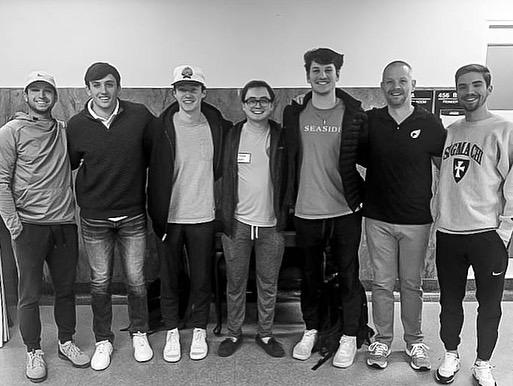
Obviously, the goal of mentoring is to make a positive impact on someone’s life, but what impact has mentoring made on your life?
I think [this] almost every single time I finish a coaching session or when I’m talking with somebody that I’m mentoring. I wonder, “Did I get more out of that than the client?” because it’s just such a powerful experience to witness. To have that honor and privilege of partnering with them as they explore and become [who they’re meant to be], that’s just an unbelievably fulfilling and gratifying experience. It is a feeling unlike anything I’ve experienced anywhere else.
I’m a recovering drug addict. I’ve gotten high a lot of different ways, and I’ve never experienced a feeling that matches the feeling of partnering with somebody. A chemical can’t do that because that’s fake. Being with someone in that space when the light bulb switches on, that’s real.
I’m very much of the opinion that you gotta give it [mentorship] away to be able to really keep it. I’ve had mentors pour into my life. If that was where it stopped, then I would not get to experience everything it has to offer. I also can’t just be a mentor pouring into other people. I need to be poured into as well or I get empty. I think ideally everybody has a mentor or a couple mentors speaking into them. But then also to really get all of it, you’ve gotta turn around and use it for something. You can’t keep it to yourself.
"I also can't just be a mentor pouring into other people. I need to be poured into as well or I get empty. I think ideally everybody has a mentor or a couple mentors speaking into them. But then also to really get all of it, you've gotta turn around and use it for something. You can't keep it to yourself."
~Jesse Trout, AUSTIN PEAY 2006
Who do you look up to for inspiration or mentorship?
My dad passed away when I turned 21. I turned 41 [on March 23]. So, in terms of a male role model, a male mentor, to lose your dad, your main one, at 21, that’s like right at a critical time in your development when you’re becoming a grown up. So, I had to go on a search to seek that out. And it took a while to land on some folks who would be positively mentoring me and positively pouring into my life, and it’s meant the world.
A lot of my early mentors in young adulthood were Fraternity mentors. My Magister [Scott Simmons, AUSTIN PEAY 2001], my Fraternity big brother [Rusty Hagenbuch, AUSTIN PEAY 2002]. Then, as I’ve gotten older, meeting more folks within the Fraternity context that have helped to mentor, shape, guide and support me. It’s dudes like [Order of Constantine Sig and Grand Tribune] Jim Holcomb, CAL. STATE-SACRAMENTO 1994, [and SCLI Executive Director] Jim Cogdal, BRADLEY 2003, who’s my boss’s boss right now. What a cool thing to be able to work for a guy that already was kind of pouring into my life. [Order of Constantine Sig] Bobby Juchem, IDAHO 1997, for crying out loud. When you start throwing these names out, it’s like, these are some of the imminent people in the Fraternity. And then, oh, by the way, I have the honor and privilege of calling them friends and mentors as well. Outside the context of the Fraternity, some folks in my faith community, like pastors, have helped to be mentors, and in the recovery community, my sponsor. My main coaching mentor is a lady who lives in California who’s been a dear friend. She’s really helped me develop as a professional and as a coach.
What was your undergraduate experience in Sigma Chi like, and why do you feel it is important to give back to Sigma Chi as a Horizons Huntsman Leadership Summit guide and Krach Transformational Leaders Workshop facilitator, among other volunteer positions?
As an undergraduate I dove in pretty much headfirst as soon as I could. I was recruitment chairman, Magister, Pro Consul. I was province delegate for Grand Council for two years. I was trying to be as involved as I could at the international level and the local level because I don’t do things halfway. I knew that day when I got down on a knee and took an oath [of initiation], well, that’s my word. That’s ultimately all I’ve got in the world. So, I need to honor that, or I’m not really worth much if I can’t honor my word. I knew from the beginning I was gonna take it all the way and maximize it.
I had a lot of guys the whole time I was in undergrad that really cared a lot for me and poured into me and helped me grow. It was a situation of like, well, if they were that generous with their time, effort, energy and love, who in the world am I to not be generous in return and take the opportunity if I have it to give even a piece of what I’ve been given? And to me, anything less than giving back is not honoring the oath that I took.
It’s been so important to me because of what an integral part of my life Sigma Chi has been. I can’t just keep that to myself. If I kept that to myself, that would shortchange me on experiencing the fullness of what it could be. I would be cheating a lot of younger undergrads and people like that out of the fullness of that experience as well. If I don’t take the chance to get out there, then I’m not gonna be able to get in front of them, talk with them and help them understand who it is they were created to be and help them experience everything that Sigma Chi has to really offer.
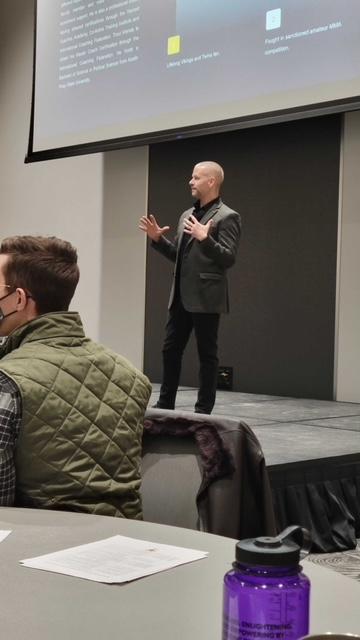
What are important attributes of a successful leader and mentor, and how do you continue to grow and develop as one?
This is a paraphrase from sports. They say that the greatest ability is availability. You have to carve out a little bit of time as a mentor or coach. You show up with a lot of curiosity and as little ego as possible, understanding what you bring to the table, but knowing that there’s no universal answer. Your way is not the only way, and it may not be the best way either. But knowing that through life experience, you’ve got some perspective to share, not perspective to impose. “Here’s my experience. What do you hear in that? What can you take away from that?” and then leaving it.
Sometimes it takes a sort of catalyst [like a coach or mentor] to help you uncover the truth, ask you some questions with love, provide you space to take risks and be vulnerable, and be free to really realize the truth of everything and realize what you have at your disposal. You have to be an encourager and acknowledge strengths without being too cheerleader-y.
It’s so rare that you have somebody in your life that in a genuine, honest way acknowledges something like, “Man, that took a lot of courage,” or, “I’ve really seen you grow so much in the last month or two.” That can make all the difference. If I can see in you the potential for so much more and I can also see in you what you’re doing to hold yourself back from that, I’m not much of a mentor if I can’t call that out with love. For example, “I see so much leadership potential in you right now. But I also see that you’re allowing fear to cause you to play it small and shortchange yourself. You’re not being willing to take risks. What’s a risk that you can take?”
I’m not saying go apply for the CEO position, but when it comes to change or taking risks, what is something that’s big enough to matter but small enough to manage? If what you do every day is walk to step 10, what will it look like tomorrow to walk to step 11? Then it doesn’t really hurt as bad if you stumble at 10 and a half because it’s small. Understand that even within failure or stumbles, there’s still a victory because you have the opportunity to learn. You either win or you learn. How can I learn so I can approach it differently the next time?
You can get discouraged, and that’s where an outside support, a mentor, can step in and say, “Wait a minute. You’re selling out to something right now because of your circumstances. Be empowered. Remember who you were created to be and step back into that. And remember that you either win or you learn. When did you forget that?” Sometimes it just takes an external person to hold up the mirror for you.
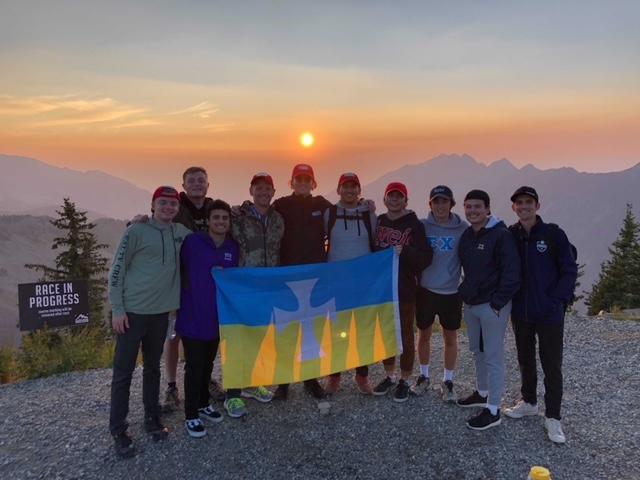
What advice do you have for ways people can inspire and empower others to create change around them?
It starts with setting the example. You can’t inspire other people to be authentic or to take risks if you’re not doing it yourself because then it’s hollow. You model the way first and then encourage other people. You can say, “Hey, here’s what this has brought to my life. To take risks, to lead, to be vulnerable, to be authentic, to get honest with myself. Here’s everything that it’s brought to my life. I think that it could bring some powerful stuff to your life as well.”
That finally getting honest with myself and being vulnerable 12 1/2 years ago when I’m finally getting to that end point with my challenges with addiction and alcoholism, nothing could change until I got honest. That was the thing that was holding me back. Prior to that I had some success. I did some decent things. But I was not living the life that I was created to live until after that.
So if that was my experience with being honest, having the courage to be vulnerable and own my bad, along with my good, if I can encourage other people to do that as well, the sky’s the limit for what that can bring to their life and the impact they can have on the world. The world needs more people who are being their authentic self. The world is starving for [authentic people] because that’s leadership. You’ve got to lead yourself first. If you’re not being who you were born to be, if you’re not being who you truly are, then you’re not even leading yourself.
If you can lead yourself powerfully, stepping into that authenticity, that model is the way for other people, and people are attracted to that. If people follow that, then they’re empowered and then they empower somebody else. You’ve got this tidal wave of change for the better.
What does transformational leadership and putting it into practice mean to you?
Leading within the community, so to speak. Not walking out front, not walking behind and not walking necessarily as much beside but within. You’ll lead yourself first, living your authentic life, being who you were born to be, living your purpose in life. That then starts modeling the way for those who get curious and get inspired to ask. And then walking with these people.
So, it starts with you, and then it radiates out to the people around you. That, in turn, radiates out to the people that they’re around. By being the you that you were born to be, you’re transforming the world a little bit at a time. It’s not for the gratification of seeing the results. I think transformational leadership is about being willing to plant the seeds knowing that you might never see the harvest, knowing that you might never see that tree sprout above ground, but you plant the seed anyway and understand that it’s not about you.
Leadership is service. Leadership is sacrificial. Leadership is not convenient. But it’s what we’re all we’re called to in one capacity or another. That means not putting yourself first. It doesn’t mean thinking less of yourself, but it means thinking of yourself less and being willing to give of your time, energy, effort and love. And understanding that you’re not doing that for anything back for any return, but you’re gonna get a return of more than you can measure. That sacrificial service, that way of leading, it’s worth it 10 times out of 10.
It’s about doing what you can during your limited time on earth to make it a better place and to impact people around you the best that you can. That transforms the world.
Ian Limon, CAL. POLY-POMONA 2020, has benefited from Trout’s mentorship and is inspired to be a mentor to others. He discusses below the importance of an outside perspective and the growth he’s seen in himself through Trout’s encouragement.
Why did you seek out a mentorship relationship with Jesse?
It started when I attended Horizons the summer of 2019 and had [Order of Constantine Sig and Sigma Chi Chief Information Officer] Dale Thomas, AUSTIN PEAY 1999, as a small group leader. Over the week I got to talking to [Thomas]. We talked about reflecting on my goals in life, and he suggested that I talked to Jesse. Jesse has different experiences as a coach and as a mentor, so [Thomas] provided that introduction.
I have different goals and different beliefs about myself that I wanted to kind of work on and improve, so I was open to the idea of having help getting there. I was looking to develop stronger leadership qualities to help out in my professional career, but also personally there were different self-limiting beliefs that I had at the time, ones that we kind of all have of not being good enough and self-doubt, things like that. I knew that it’s a lot easier to [reach personal goals] if you do it with someone else to reach that destination. With Jesse as a mentor, he really has served as an outside perspective to provide feedback to me and keep me accountable to myself.
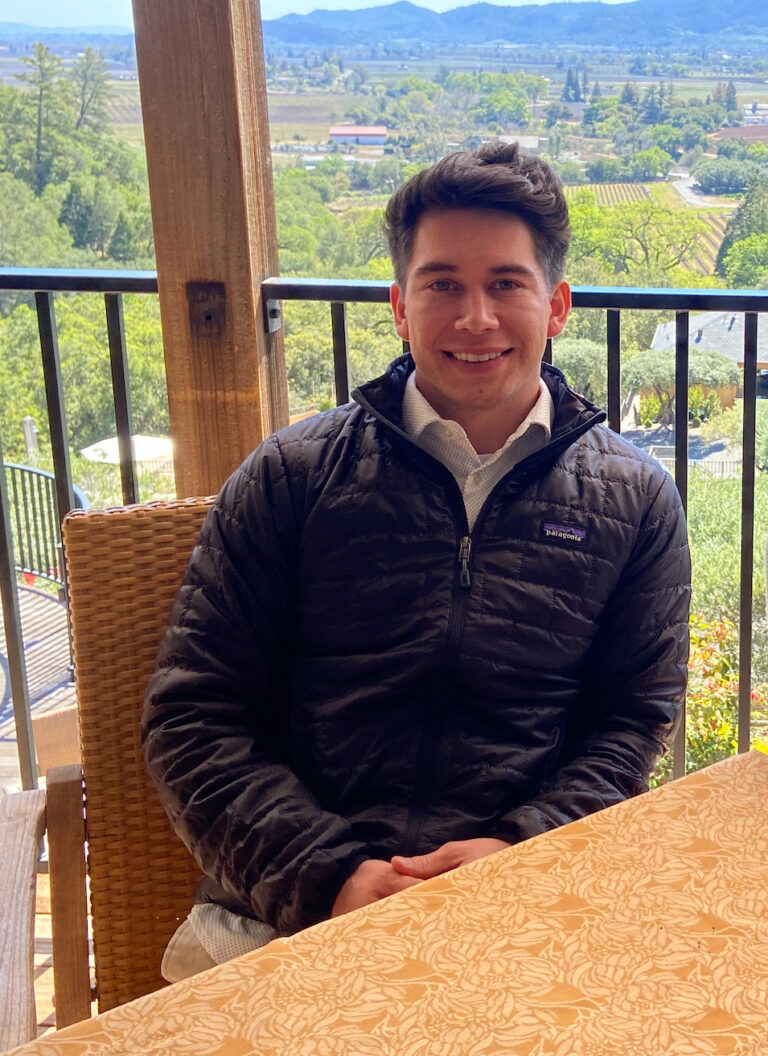
How have you benefited in your personal and professional development from Jesse’s mentorship?
It’s been a lot of personal growth, having that outside perspective, having someone who can see the strengths in me and being able to see somebody not for who they are presently, but for who they’re going to be. Recognizing those strengths and calling them out with knowledge and outside perspective, it has changed my thought patterns and beliefs about myself. [It’s built] more belief in my skills, my talents, my abilities and built more confidence in my place and myself for sure. Another personal goal was to develop deeper and more connected relationships with other people, and I think there’s also development there as well.
"I think often in life we don't really tell people how we truly feel about them. If you notice a good quality in someone, you might keep it to yourself. Especially for men, I think it's a little bit strange to just kind of pay someone a compliment. But when someone does do that for you, that takes vulnerability and courage, and for that person that it is directed toward, it just means the world."
~Ian Limon, CAL. POLY-POMONA 2020
From your perspective, what are the qualities a good mentor should have?
I think you really need courage. I think a mentor has to be vulnerable with the mentee and has to show a side of them in order to cultivate trust with the mentee in order to allow them to feel open to share. A mentor definitely has to have wisdom with experience. As a mentee you want to be mentored by someone who has shown integrity in life and has integrity. In addition to that, I think you also have to have high ambition as a mentor because you’re serving other human beings. It’s one of the highest callings for sure to serve. Of course you’ve got to be willing to listen, not hold judgment and not see people for who they are in the present, but for who they can be in the future and also be able to recognize and call out strengths in people.
I think often in life we don’t really tell people how we truly feel about them. If you notice a good quality in someone, you might keep it to yourself. Especially for men, I think it’s a little bit strange to just kind of pay someone a compliment. But when someone does do that for you, that takes vulnerability and courage, and for that person that it is directed toward, it just means the world.
[It’s important to] have a mentor relationship, even if it’s not a formal one where you’re talking at regularly scheduled times. We all have informal mentorship relationships, and we might be mentors to others not even knowing it. And you should also have multiple mentors and seek out different people.
How has all of this inspired you to pay forward the lessons and advice you’ve gotten from Jesse’s mentoring?
For me it’s brought out that call to service, and you’re aware of how important it is, or at least I am. I think that mentorship and serving is really a two-way street. I think that the mentor and the mentee both have amazing opportunities to learn from each other. So, kind of seeing that, it’s inspired me to also take on younger, kind of like college-aged students and provide a little guidance and advice.
I haven’t really done a full-on mentorship type of thing, but it’s something I’m looking toward. With the college-aged students, I volunteered for the Officer Training Academy and Krach TLW through Sigma Chi and also have volunteered for different organizations in my hometown.
This [mentorship relationship with Trout] kind of fell into my lap by grace. It’s been a great opportunity. Meeting Jesse and getting to know Jesse has been a huge change in my life. So I think [it’s important] just passing that on, putting an exclamation point on how important it is and [sharing] how much difference it can really make.
Transformational leadership is the practice by which leaders inspire and empower others to innovate and create change that will positively impact the Fraternity and ultimately the world. The transformational leader first must learn to manage self before being able to lead others and cultivate action within their community and campus. This quarterly series highlights members who are putting transformational leadership into practice. For more information about Sigma Chi’s Transformational Leader program, visit sigmachi.org/transformational-leader.